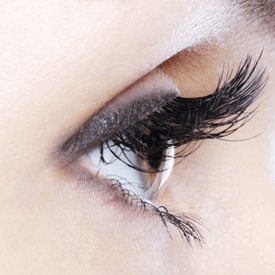

ABOUT MACULAR HOLES
A macular hole results when the central part of the retina, called the macula, has a tear in it. The macula is responsible for adding clarity when reading, driving, and other important activities that require focus and honing in on minute details. When the macula is damaged, it can greatly affect your vision, and can progress to devastating levels if left untreated. However, our board-certified retina surgeon, Dr. Shalesh Kaushal in Ocala, FL, can diagnose and help treat a macular hole. There are three different stages of a macular hole, which will determine what treatment will be needed and what steps will be taken during a consultation at our office. Stage one, called a foveal detachment, can result in the progression of 50% of existing tears. In stage two, partial-thickness, patients will have larger holes, 70% of which will progress. The third stage, full-thickness, can be detrimental to the patient’s overall vision and will usually require surgery to address it.
MACULAR HOLE KNOWN CAUSES
A torn macula, or macular hole, can be the result of a traumatic incident involving the eye or other medical-related issues such as retinal detachment. In other instances, the vitreous, a gel-like substance found in the eye that supports its structure and is attached to the retina, can begin to break away and diminish. The gel can also stay connected but contract in a way that creates friction and causes a hole to form over time. Whenever a hole is formed, fluids will move in the place of the vitreous and fill up the hole, which blocks and blurs vision.
MACULAR HOLE SYMPTOMS
Depending on the stage of the macular hole, symptoms may vary, but some common signs can be:
- Distorted or blurred vision
- Straight lines and objects having a bent or wavy appearance
- Difficulty performing activities such as reading and driving
- Difficulty with distinguishing fine detail
MACULAR HOLE DIAGNOSIS
There are different tests and ways to detect a macular hole. First, our surgeon will conduct a thorough exam of the patient’s retina by dilating the pupils. Other tests can be performed to determine if there’s a tear like a fluorescein angiography, involving a special dye that allows our surgeon to get a closer look at the smaller areas in a more detailed way. One of the most effective ways to diagnose a tear in the macula is through the optical coherence tomography (OCT) test, which uses a laser camera. The retina will be photographed in order to determine if there are any defects such as foreign fluid, swelling, or other signs of a tear. This test is able to detect smaller tears as opposed to some other methods.
MACULAR HOLE TREATMENT AND PROGNOSIS
In some cases, macular holes can self-heal and no surgery will be required. However, in the more severe cases, a surgery called a vitrectomy is often the most effective option for restoring eyesight and preventing further vision loss. This surgery involves removing the existing vitreous gel in the retina to keep it from further damaging and breaking off from the retina. The next step is to implant a replacement substance made up of air and gas that will serve as a way to seal and bandage the holes together. For proper recovery, it’s important for the patient to look down for the next day or two following the operation, though this may be necessary for several weeks to ensure the holes are effectively sealed. A vitrectomy can result in significant vision improvement and restoration; however, it considerably increases the patient’s risk of developing cataracts. In other cases, a drug called Jetrea may be a more viable option, which is an FDA-approved medication that helps reduce blurriness and distorted vision.
RESTORE YOUR VISION TODAY
Blurry and distorted vision can detract from your overall quality of life and prevent you from performing necessary daily activities. A macular hole can develop into a serious issue if it goes undetected. We invite you to schedule a consultation with us today to help restore your vision.


